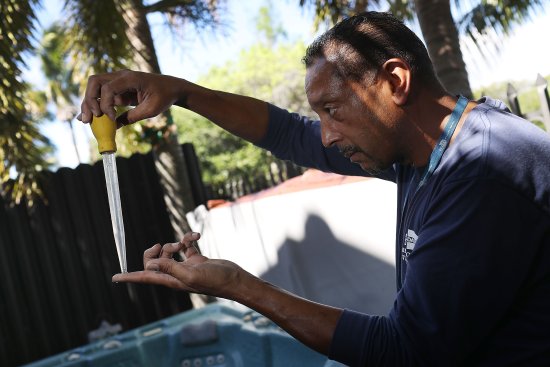
"Evidence is mounting to suggest local transmission via mosquitoes is going on in South Florida"
Florida health officials confirmed Wednesday that they are looking into two more cases of Zika that do not appear to be related to travel or sexually transmitted.
The cases — which number four in total — raise the possibility that mosquitoes in the U.S. are carrying and transmitting the virus, Reuters reports.
“Evidence is mounting to suggest local transmission via mosquitoes is going on in South Florida,” said Centers for Disease Control and Prevention (CDC) spokesman Tom Skinner. All four cases have been identified in the Miami-Dade and Broward counties.
Local transmission of the virus is defined under the U.S. Zika response plan as two or more cases not related to travel or sex with an infected person, that occur within a 1-mile diameter of each other within one month.
To confirm whether Zika, is in fact, homegrown, scientists will survey houses and neighbors within a 150-yard radius of the infected person’s home — roughly the flying distance of the mosquitoes.
The state is asking locals and visitors within the area of the investigation to submit urine samples in order to help scientists determine the number of people affected.
Florida is currently dealing with 328 travel-related cases of Zika and monitoring 53 pregnant women infected with the virus.
[Reuters]